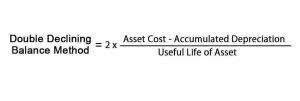
Understanding which payroll taxes are the employers’ responsibility is an excellent starting point for nailing your payroll processes. The best way to make sure that payroll taxes are withheld, accounted for, reported, and paid is to set up a system that works automatically. As a business with employees, you have certain important responsibilities relating to payroll taxes. The wage base subject to federal and state unemployment tax also changes annually.

Employers must withhold FICA taxes from employees’ wages, pay employer FICA taxes and report both the employee and employer shares to the IRS. For the 2019 tax year, FICA tax rates are 12.4% for social security, 2.9% for Medicare and a 0.9% Medicare surtax on highly paid employees. The federal government doesn’t pay unemployment benefits, but it does help states pay them to employees who’ve been involuntarily terminated from their jobs. To fund this assistance program, employers must contribute to FUTA, which is a tax created by the Federal Unemployment Tax Act.
SUTA tax
The failure to properly withhold and deposit taxes may result in significant penalties for employers. In addition to federal income tax, payroll taxes may also include withholdings for any state income taxes due. Some cities, including New York City and Philadelphia, also have local income taxes, which can result in additional wage withholdings. While the phrases “income tax” and “payroll tax” are often used interchangeably, there is a distinct difference.

Payroll taxes help the government pay for social programs like Social Security and Medicare, which assist the retired or disabled. FUTA, a federal tax, helps pay for those who have lost their jobs. The amount of money taken out of each paycheck depends which payroll taxes are the employees responsibility and which are the employers responsibility on what the employee indicated on their W-4 form when they were hired. This form explains how much money should be withheld from each paycheck to cover federal income taxes. Payroll taxes are one of the most important aspects to having employees.
Which payroll taxes are the employee’s responsibility?
Regardless of how much a worker earns, they and their employer each pay Medicare taxes on total income. Employers must pay a flat rate of 6.2% of each employee’s wages for Social Security tax. If total payments to an independent contractor in the year are $600 or more, the business must file an annual information return—Form 1099-NEC—to report the payments to the worker and to the IRS.

Part of an Affordable Care Act provision, the additional Medicare tax of 0.9% applies to employee wages above $200,000 (single filers) or $250,000 (joint filers). However, you’re responsible for withholding it, when applicable. Generally, employers are required to report and deposit payroll taxes on a regular schedule, typically quarterly. This includes amounts withheld from employee compensation based on the frequency of payment.
Employee Onboarding Guide
The trust fund will be funded in part by fees paid by issuers of certain health insurance policies and sponsors of certain self-insured health plans. In fact, for many small business owners, understanding payroll taxes and then implementing an effective payroll tax management system can be one of the most complicated parts of hiring their first employees. As you might imagine, SUTA taxes vary considerably in each state, from as little in 1% in Iowa to as high as 3.689% in Pennsylvania. The federal government grants a credit of 5.4% for employers who pay their SUTA taxes in full and on time, bringing the effective FUTA tax rate down to 0.6%. The only exception is if your state is a credit reduction state. You have to pay SUTA taxes in any state where you have employees.
- The possibility of these penalties means employers must get things right.
- A structured and simple overview of what employers need to know about the taxes that flow through payroll – on both the employer and employee side.
- Beginning in 2011, insurance companies are required to spend a specified percentage of premium dollars on medical care and quality improvement activities, meeting a medical loss ratio (MLR) standard.
- However, outside of regular wages, other types of wages are called supplemental wages.
- First, set up a separate payroll bank account, so you can keep payroll-related payments and income separate from your general business accounting.
- Generally, employers are required to report and deposit payroll taxes on a regular schedule, typically quarterly.
Your payroll tax liability varies based on the number of employees you have, how much you pay those employees, and where your business is located. Voluntary deductions can be paid with pre-tax or after-tax dollars, depending on the type of benefit that’s being paid for. Some pre-tax deductions reduce only wages subject to federal income tax, while other deductions reduce wages subject to Social Security and Medicare taxes, as well. Managing payroll taxes can feel overwhelming even for the most experienced payroll professional.
Year-End Review of S Corp Compensation: Stay on the Right Side of the IRS
The requirements for depositing, as explained in Publication 15, vary based on your business and the amount you withhold. There are no special forms used to calculate payroll taxes, and no special forms are needed when depositing payroll taxes. However, there are required forms that report withholding activities to the appropriate federal, state, and local tax authorities.
- Taxes are an inevitable part of payroll, and employees are no exception to these requirements.
- Upon hire, all employees are required to complete a Form W-4, Employee’s Withholding Certificate to provide the employer with the information needed to properly compute withholding.
- Eddy is the all-in-one HR Suite built to help local businesses easily manage their people, payroll, and hiring processes.
- FICA taxes are payroll taxes that fund social security and Medicare.
- But in all cases, it’s up to employers to calculate, withhold, and deposit them.
Social Security and Medicare taxes are put into trust funds to benefit current and future Medicare beneficiaries. Collected taxes fund the retirement, disability, and survivorship benefits millions of Americans receive each year. As of 2022, the Social security tax rates are 6.2% for the employer and 6.2% for the employee.
The quarterly deadlines for depositing your FUTA taxes are April 30, July 31, October 31, and January 31 (identical to the filing deadlines for Form 941). As with FICA taxes, you should deposit the FUTA taxes on EFTPS. If your FUTA tax liability is less than $500 in a year, however, you can include payment along with Form 940 instead of depositing the taxes on a quarterly basis. FUTA stands for the Federal Unemployment Tax Act, and SUTA (State Unemployment Tax Act) is the state component. FUTA taxes are used to fund unemployment compensation programs.
- You must start deducting the Medicare surtax when the employee’s earnings reach $200,000, but the couple falls beneath the $250,000 threshold for married, joint filers.
- If you don’t want to handle these responsibilities on your own, payroll software or a professional employer organization can help you stay in compliance with federal, state, and local requirements.
- Luckily, however, in addition to getting a better understanding of how these taxes work, there are a handful of other actions you can take to ensure you’re meeting all of your responsibilities as an employer.
- You file employee income taxes based on the W-4 they filled out when you hired them.
- Most people don’t realize this because these taxes are withheld from their paycheck by their employer and the employer takes care of making sure they get paid.
- So, in total the FICA tax is 15.3% of the employee’s gross pay.